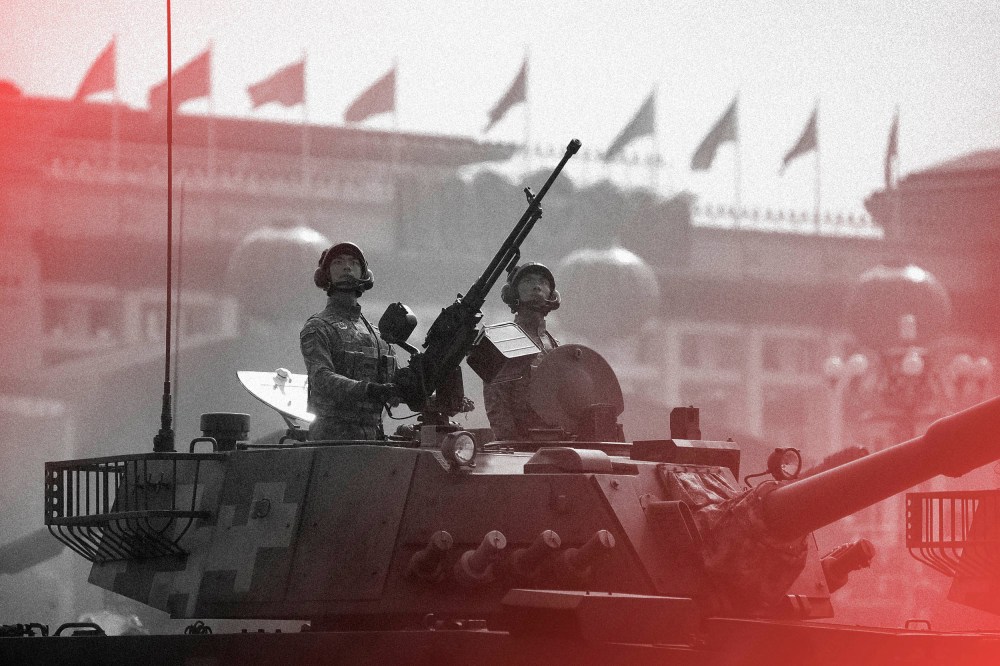During the turbulent final months of President Donald Trump’s administration, Gen. Mark A. Milley, the chairman of the Joint Chiefs of Staff, took it upon himself to serve in loco parentis for a country that was descending into chaos, according to a preview of a new book by Washington Post associate editor Bob Woodward and national political reporter Robert Costa. Milley reportedly told senior military officers to make sure they had his assent before executing nuclear launch orders.
Gen. Mark A. Milley, the chairman of the Joint Chiefs of Staff, took it upon himself to serve in loco parentis for a country.
He played parent to the world, too: The preview said he used his personal relationship with the head of China’s military to assure him the U.S. was not about to collapse — and he promised to warn China ahead of time if the U.S. decided to launch some kind of military attack.
That is extraordinary. It’s comforting, in the sense that the two military chiefs can back-channel during moments of uncertainty. But it’s scary as hell because it assumes the elected officials making decisions are not cognitively capable. Milley clearly thought Trump was unhinged.
Here’s a thought: If the United States’ vaunted nuclear control system forces the chairman of the Joint Chiefs of Staff to secretly instruct his subordinates to ignore the chain of command to prevent a rogue president from instigating Armageddon, that system is broken.

However, three of the past nine presidents have exhibited behavior so worrying that their own staffs took quasi-legal (or perhaps not at all legal) steps to stop them from starting wars. President Richard Nixon drank heavily, and he missed a nuclear showdown with Russia because he was sleeping. Later, his secretary of defense would ask officers in the chain of command to check with him if Nixon ever called them directly and asked them to do something catastrophic. (Treason in service of patriotism is a fair way to characterize this.)
President Ronald Reagan, toward the end of his second term, had symptoms of what would later be diagnosed as Alzheimer’s disease. For my book, “The Brink,” I spoke to presidential aides who told me about offline discussions to make sure that every presidential order served a legitimate purpose. Reagan, luckily, viscerally feared nuclear war and was not about to start anything. The corollary is scary, too: His staff felt empowered to make decisions about critical national security matters without giving the president’s input its proper due.
Then there’s Trump, whose term in office was marked by nuclear brinksmanship against North Korea, Russia and Iran and whose post-election attempt at an autogolpe convinced his top aides that he was simply unhinged.
The military’s formal chain of command is operationalized as something called the National Military Command System, of which nuclear control orders are a major part. The chairman of the Joint Chiefs is the top military adviser to the president. However, the president is not required to check with him before making a decision, and the (highly classified) procedures don’t give the chairman a vote. His staff has to execute and transmit the orders, so he’d know about them, but “command authority” lies with the civilian-elected president or the president’s duly designated successors.

The Air Force has been in charge of a multibillion-dollar nuclear comms modernization project for years. I’ve been following it closely. A lot of money is being spent to upgrade resilience against cyberattack, to harden satellites, to add extra pathways for the president to communicate directly with nuclear fighter bombers. New command and control planes (with new acronyms) are being procured at the moment.
What isn’t being addressed — and what is rarely ever addressed inside the Pentagon — is what scholar Peter Hayes called the “ghost in the machine.” Think of it like this: The system is designed to work when the decision-makers act rationally given a set of extraordinary circumstances. If Russia launches 100 intercontinental ballistic missiles at the U.S., the military wants to make sure the president can be confident that the intelligence, the warnings, the sensors are all seeing something real. That way, the thinking is, the president can be confident in making a decision about retaliating — and do so quickly.












